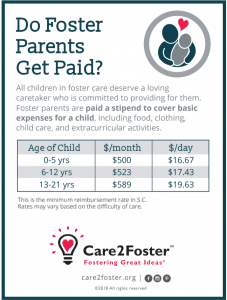
Recently, there’s been a shift in the number one response I get when people find out my husband, Phil, and I are foster parents. For the longest time it was the “I-could-never-do-that…” comment. But a few months ago, I started to get a lot of “I would LOVE to foster or adopt, but my spouse doesn’t feel the same way.”
It was hard to know how to respond. Because while there were obstacles to overcome before we began fostering, we didn’t go through this situation. The first couple of times someone brought up a spouse’s reluctance, I just nodded awkwardly and mumbled something back about people feeling called to different things. But then after it had happened a few times, I got curious, and started to respond by asking why. And based on the responses I got, I learned the issues were much more complex than my assumptions. There can be highly personal reasons why a spouse is hesitant to foster, but I also found there are some common concerns across the board.
So if you find yourself in this position, or know of someone who is, here are some insights and a bit of advice looking forward, based on concerns others have shared.

Realize your spouse may need more information
Phil has never made it through an entire parenting book and I have an entire shelf of highlighted, dog eared copies. It interests me, and so I naturally seek out information. If you are feeling a tug to become a foster parent, chances are you have read every blog, book and news article available. But just because you’ve done your research on foster care issues doesn’t mean your spouse has done the same. There are so many falsehoods and myths out there about foster care/adoption that without enough information, your spouse may continue to reject it as a possibility. Find out if there are informational gatherings in your area you could attend together, utilize the resources here at Care2Foster, or watch a foster care documentary together. Two powerful, commonly viewed documentaries are Removed and Unwanted. We also have a series of book reviews on foster care if your spouse would consider reading a book on the topic. A little knowledge may go a long way in helping your spouse consider foster parenting!
Consider the financial burden your spouse may feel
Some spouses are unwilling to consider caring for more children when there is already a lot of financial stress on the family. So if you are serious about fostering, it may be helpful to develop and implement a budget that reduces money stress. This may help give your partner the confidence that fostering will work financially for your family. Because while no one has to be rich to become a foster parent, you will be required to show that you are able to meet your current financial obligations, even with additional children. That said, many people also aren’t aware the state will provide a monthly living stipend for an additional child. So this brings us back to gathering information— check with your DSS office to find out what the living stipend in your state is.

Are you communicating you can’t handle it?
I’m a venter. Absolutely, 100% guilty of this. I tend to vent to my husband A LOT about the daily stresses of life. There was a time a few years back I told Phil I wanted to take another foster care placement. “No way”, he said. “You are already at your max.” But I knew I wasn’t— I KNEW in my heart I could handle the additional responsibilities of another child. So I started finding other outlets for stress instead of meeting him at the door with a laundry list of the day’s problems. It’s important that if we feel confident we are able to handle the additional stresses of fostering, we aren’t sending mixed messages about our ability.
There may be insecurities about being a good foster parent
Being a parent is a hard, demanding job. Many people are doing it without the example of loving, healthy parents themselves. Add in the common misconception that foster parents are the epitome of super parents, and a lot of people conclude they simply wouldn’t have what it takes to parent someone else’s child. If this is the case, take the time to get to know a foster family. If you don’t know any, Care2Foster would love to help connect you with a family in your area. Pretty soon the pedestal will come crashing down and your spouse will be encouraged to see foster parents are just regular, imperfect people who have said ‘yes’.
Wait and find other ways to impact kids in care
Fostering can be a hard, rocky road and the last thing you would want to do is walk down it without being united as a couple. It may take time for your spouse to feel ready. Find ways to support foster and adoptive families around you. Become a mentor to a teen in your community, or volunteer with the GAL program. Foster parenting is just one way to give back— there are many, many ways to impact the life of a child in foster care! Be encouraged that others have waited for a spouse to get on board, and your patience, encouragement, and passion for kids in need has the power to inspire.



